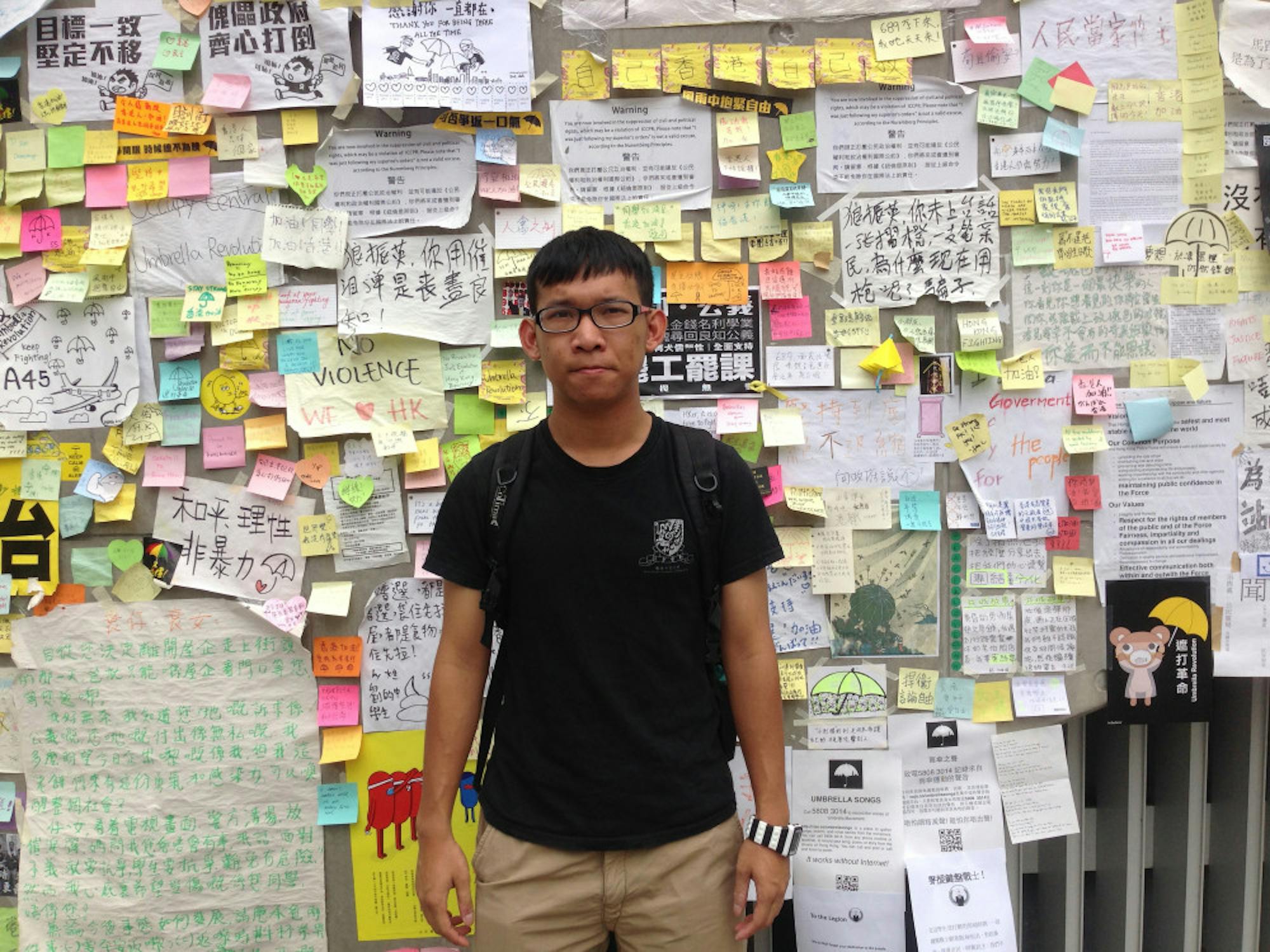Over 40 students attended the “Discussion of Hong Kong Umbrella Revolution," Tufts Global China Connection’s first event of the semester. The discussion, which took place yesterday in Braker Hall at noon, featured Michael Beckley, assistant professor of political science, and Ivan Rasmussen, a Ph.D. candidate at The Fletcher School of Law and Diplomacy.
The event was co-sponsored by the International Relations Director’s Leadership Council (DLC) and the Hong Kong Student Association.
The discussion was held in response to the recent Occupy Central protests in Hong Kong that erupted in September when Chinese officials announced that they would not grant citizens of Hong Kong universal suffrage and continue to screen the Hong Kong government candidates in the upcoming 2017 Chief Executive election.
Beckley began the presentation with an introduction of the history of Hong Kong after its transfer of sovereignty to China from the United Kingdom (UK) in 1997.
The Chinese approach to Hong Kong of “one country, two systems” was formalized in a series of agreements with the UK, including a form of a constitution in the Hong Kong Basic Law, according to Beckley.
He explained that today, Hong Kong is viewed among leaders in China as a hotbed of Western espionage and intelligence, making the mainland always fearful of foreign attempts to stir up unrest.
China is afraid that if it concedes on Hong Kong, this will "set a precedent for other regions ... most notably, Taiwan," Beckley said.
While many believe the Occupy Central protests are unprecedented dissent, Hong Kong saw large protests in July 2003 in opposition to Hong Kong Basic Law Article 23, the basis of a security law, according to Beckley.Around 10 percent of the Cantonese population marched in the streets against what people viewed as evidence of the authoritarian nature of the Chinese government that eroded freedom of speech.
Many parallels can be drawn from the 2003 incident to Occupy Central, Beckley noted. In response to the 2003 protests, Beijingtold the Cantonese government to make minor concessions, amending controversial elements of Article 23 and firing top Hong Kong officials to appease the public.
After a historical contextualization of Occupy Central, including mention of the reinterpretation of the Basic Law in 2004 that essentially ruled out the possibility of universal suffrage in Hong Kong for the 2007 Chief Executive elections, Beckley summed up his portion of the presentation by commenting that the Chinese government is unlikely to make any real concessions to the protesters.
“The era of the hands-off approach to Hong Kong, if it ever was, was over,” he said.
Rasmussen spoke briefly about the history in Hong Kong, the traditional role of students and intellectuals in protests and the pro-party patriotic education in Hong Kong public schools.
He also underscored the complexity of the protests, since many Cantonese people’s lives are being disrupted and the market in Hong Kong has been declining for the past two weeks. The protests have also given rise to anti-Occupy Central protesters in the midst of potential peace talks being scheduled between the student protesters and the government.
Rasmussen explained that people felt that the "police were not being helpful about [dealing with] counter protesters" in Occupy Central, which was allowing certain levels of violence to break out between the protesters and the people disagreeing with them.
He added that while there have been media blackouts on Occupy Central coverage in mainland China, most people in China are fairly aware of what is going on. Most of them are largely indifferent to what is happening or view the protests as a public nuisance, although there is limited regional solidarity for the student protesters, he noted.
Language has played a role in internal cohesion and external relevance in terms of news reporting on this issue in Hong Kong. A large number of people in Hong Kong speak English, as well as using Cantonese instead of Mandarin Chinese, which is spoken in mainland China, according to Rasmussen. The use of mesh technology and technology as a whole has also brought together people in solidarity for this cause.
After Beckley and Rasmussen presented, there was a question and answer session that brought up lively discussions and debate.
Beckley said that he is skeptical about any foreign intervention in Hong Kong because he believes that unless there is a Tiananmen-style crackdown by the government, outside actors such as the United States value relations with Beijing too much to take any solid action.
There have already been accusations of Western influence in the inception and process of these protests, Rasmussen added.
Beckley explained that while some have criticized the media coverage on the Occupy Central movement as having sensationalized what is happening in Hong Kong, the “stakes are massive” and the protests are “really a key litmus test” on China’s relations with its autonomous regions and outside states.
Both Beckley and Rasmussen predict that the Chinese government will make no major reforms but will make minor concessions, such as the sacking of certain officials, the possibility of opening candidates up to “public input consultation” and the increase of a dual strategy of economic strengthening and increasing propaganda to subdue the people.
The upcoming Asia-Pacific Economic Cooperation summit in November is somewhat of an explicit timetable for the protests.
The main goal for the Chinese mainland government continues to be regime security, Beckley said.
“I think [the event] was pretty successful,” DLC council member and event organizer Jiahe Chi, a junior, said. “We attracted a large audience and both speakers had insightful points.”
Professor and Fletcher student discuss protests in Hong Kong

Kelvin Chan, 23, stands in front of a wall of pro-democracy messages called the "Lennon Wall" at the Admiralty protest site in Hong Kong.





